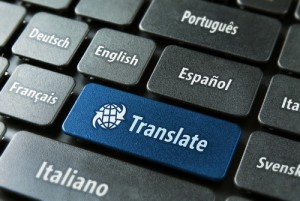The need for translations related to the U.S. Foreign Corrupt Practices Act (FCPA) have grown substantially in recent years. For most companies, FCPA translation is limited to translating corporate compliance policies into various languages for overseas employees and offices. The importance of translating these policies clearly and accurately should not be underestimated.
But for law firms defending their clients during an FCPA investigation, hundreds and possibly thousands of foreign language documents may need to be translated. The cost for translating these documents can be exponentially high, and relying on machine translations alone is a risky strategy.
Your best bet for FCPA translation is relying on a multi-pronged approach that relies on 1) filtering techniques like foreign language keyword search to remove irrelevant documents from the data set 2) machine translations to get the “gist” of what each document contains 3) document summaries to determine if a full translation is needed 4) certified word-for-word translation for documents that must be clearly understood and/or submitted to the Department of Justice or SEC.
A multi-stage process for FCPA translation that filters down the cache of foreign language documents not only helps lower costs but also speeds up review time. It’s also critical to use translators that are experts in the field and familiar with local terminology. For example, French words associated or used as slang for bribery or “pay-off” are different in Morocco than in France. The translator should be familiar with these regional differences.
Partnering with a translation company with significant FCPA translation experience should help provide you with strategies for containing costs while still ensuring accurate, reliable translations to help you build the strongest case possible.


